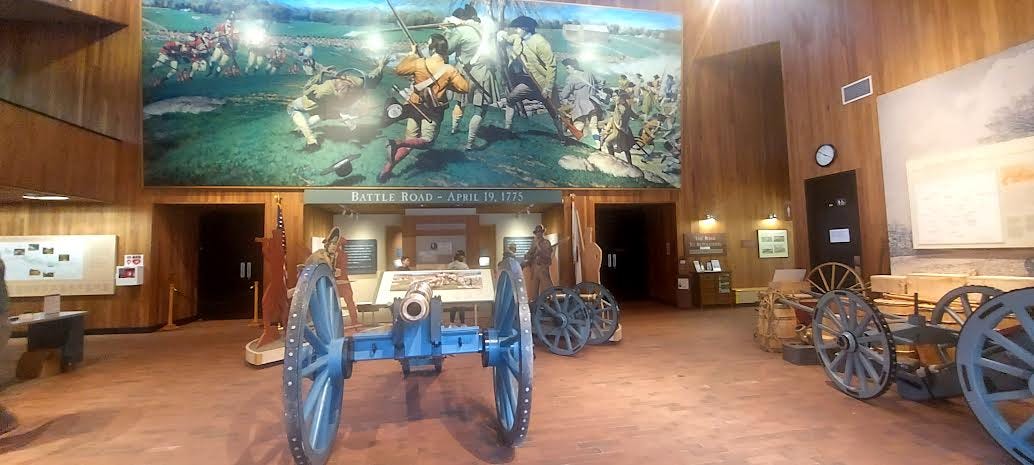The road to the American Revolution started 250 years ago this month.
It’s a notable anniversary (semiquincentennial) of the first shots fired April 19, 1775, at Lexington Green and Concord in Massachusetts. The events of that day would lead to the American Revolutionary War (1775-83), the Declaration of Independence and the establishment of our nation.
What an appropriate time for me, as a student of history, to observe events when America is doing some serious soul-searching about what it means to be an American and our liberties — similar to questions that were asked 250 years ago.
But for now, let’s take a trip back to 1775, and the celebrations that were held April 19, 2025…
The Minute Man statue at Concord, Massachusetts, stands vigilant. (Photo by John Naughton.)
I recall the American Bicentennial year of 1976, when everything seemed to be cloaked in red, white and blue. I was 14 and there were many events in Iowa to honor 200 years since the Declaration of Independence voiced that we were a new nation.
There was the Freedom Train stop in West Des Moines in September, 1975 — a traveling museum on wheels that displayed historical items as well as American memorabilia (why were Dorothy’s Wizard of Oz red slippers there?).
A family vacation to Philadelphia in the summer of 1976 brought my parents to Valley Forge, Philadelphia and Washington, D.C. A station wagon loaded with two adults and five kids. It was a trip that helped instill a love of travel and history.
Visitors to the Minute Man National Historical Park in Lexington can start their journey back in time. (Photo by John Naughton.)
I’m looking forward to celebrating anniversary events for the next few years.
A brief history lesson that you may or may not recall from your school days…
In 1775, the American Colonies were part of the British Empire. Some citizens in the 13 colonies (certainly not all; it was a divisive conflict) were upset about the limited self rule and freedoms allowed under the British monarchy. In parts of New England, militia bands formed and began stockpiling weapons, munitions and supplies.
Boston, in particular, was a hotbed of anarchy brewing. The Boston Tea Party (1773), the Boston Massacre (1770) and tax acts stirred the pot.
Keep reading with a 7-day free trial
Subscribe to My Life, in Color to keep reading this post and get 7 days of free access to the full post archives.





